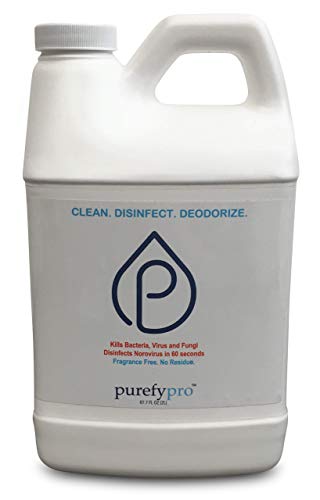Cytomegalovirus (CMV)
Cytomegalovirus, commonly known by its initials as CMV, is a very common viral infection that can occur in anyone of any gender, race, or socioeconomic class. It is often a disease of childhood with the majority of people being infected when they are children age 6 or under. Most people who have CMV will never know it, but in some people CMV can be very dangerous, even fatal. And it is especially dangerous for pregnant women to have their first CMV infection while carrying the baby.
CMV is part of the herpes virus family, being number five of that group to be specific, but it doesn’t cause the classic herpes symptoms of painful fluid filled blisters. At its worst, at least in most people, it won’t cause much more than what appears to be the common cold. But, like other herpes viruses, it remains in the body for your lifetime and that means that like herpes simplex and varicella zoster (chicken pox or shingles), it could reactivate at any time, especially during times of bodily or emotional stress, and potentially cause problems.
CMV in the Immune Compromised
Again, in most people, CMV is not a serious infection. However, for immune compromised people, including people living with HIV/AIDS, organ or bone marrow recipients, and some patients being treated for other conditions including cancer and autoimmune diseases, or anyone with a compromised immune system due to any cause, CMV can be very serious. CMV can cause an infection of the retina that can lead to blindness and it can also infect the internal organs, including the brain, the intestines, and the lungs and lead to serious, even fatal, disease in these systems. It is very important for immune compromised people to know if they have been exposed to CMV in the past, and if not, they should take steps to prevent being infected. Simple blood tests available from your doctor can tell you if you have been exposed to CMV at some time in the past.
CMV in Pregnant Women
The group at greatest risk from CMV is pregnant women. CMV antibody testing is an essential and common part of prenatal blood tests and it is one reason among many why prenatal care is so important. While a new CMV infection isn’t likely to cause noticeable illness in the pregnant woman, if she becomes infected there is a good chance she will pass the infection to the developing child and in that case the results can be devastating. In fact, CMV is the most common viral cause of birth defects in the United States. Most commonly, infected children suffer from visual impairments, but they can also suffer from more devastating and irreversible brain damage with cognitive and intellectual deficits that last a lifetime. Pregnant women, who have not already been infected, should take active steps to prevent infection during their pregnancy to help protect their fetus.
How CMV is Spread
CMV is spread through body fluids, most commonly through contact with children’s urine and saliva, but also through sexual body fluids, breast milk, and blood. Breast milk contact will not make a newborn ill, but discuss this with your doctor if you have a new infection. CMV infections are often spread from children to other children and to uninfected adults through saliva contamination that is direct person to person or through shared surfaces such as counters and toys. Any surface that an infected child can touch can be contaminated and according to the Centers for Disease Control and Prevention (CDC) should be cleaned to help prevent the transmission of CMV to others. Because CMV is common in children, it is frequently spread in childcare settings including daycare centers and schools. Women who may become pregnant should take precautions in these settings as well as with children at home who spend any time in such settings where infections with CMV are commonly spread.
Disinfectant Against CMV
While it is recognized that cleaning potentially contaminated surfaces is an essential part of CMV infection prevention, a problem arises when trying to decide which cleaner and disinfectant among the many on the market would be the best for helping prevent the spread of CMV. The most important factor in selecting such a cleaner and disinfectant is to check to be certain that the product has undergone the strict testing and certification requirements imposed by the Environmental Protection Agency (EPA) for determining effectiveness against CMV on household surfaces. Only cleaners and disinfectants that have this certification are CERTAIN to be able to eliminate CMV contamination from surfaces and objects. Any other cleaner or disinfectant that doesn’t have this certification, and that means most of them, can’t provide guaranteed and certified effectiveness against CMV, a potentially deadly threat to some people and a lifetime devastating infection for newborns.
Viraguard at CleanerToday.com
While it can be difficult to know which cleaners and disinfectants you can trust to eliminate CMV, CleanerToday.com makes it easy when you select a product from the Viraguard family of cleaners and disinfectants. Unlike most any cleaner you find in the grocery store or similar retail outlet, Viraguard products have EPA certification as effective against CMV on surfaces and on hands. Viraguard is safe and effective for most any household surface as it contains no bleach that can damage surfaces, including those that bleach might destroy or discolor. And, completely unlike bleach which should never come in contact with bare skin, Viraguard is available in formulations specifically designed for skin contact, including convenient hand wipes that can also be used to clean and disinfect shared surfaces in the larger world outside the home.

